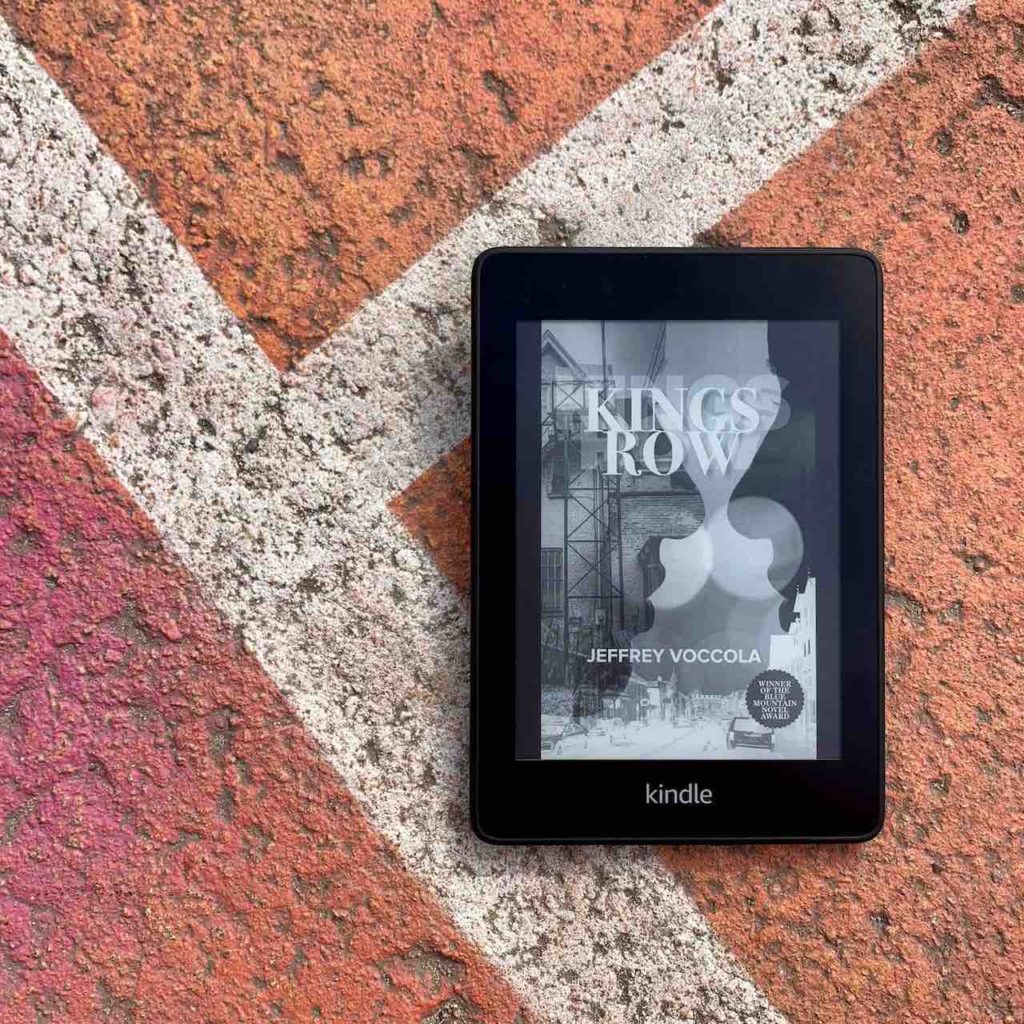Kings Row tells the story of Joel Martin, a construction worker from Langley, Pennsylvania. To support himself and his four-year-old son, he begins burglarizing construction sites with his brother. In a parallel plot, Christopher Roche moves and settles into the neighboring small town of Waylan as a freshman bachelor’s student. Based on the unfortunate homicide of a Kutztown University college student in 2007, Kings Row opens on the crime scene of Roche’s murder.
Voccola portrays the nuances of small-town America today, demarcating the subtle feelings that lead to greater racial and class tensions. In many ways, the fictionalized towns of Langley and Waylan appear to be 21st-century renditions of John O’Hara’s Gibbsville—the real cities being only 45 minutes from one another. While O’Hara wrote and lived in the region’s arguable heyday, Kings Row depicts how the community, now on the economic decline, reacts to demographic changes in their towns.
Unlike O’Hara, Voccola depicting class divides comes second only to developing his true to life characters. In a 2013 New Yorker article, Lorin Stein describes John O’Hara’s writing as, “on the topics of class, sex, and alcohol—that is, the topics that mattered to him—his novels amount to a secret history of American life.” Although he provides a realistic rendition of small-town America, he does so through a class- and status-obsessed lens. As someone who often felt shunned from the upper class, O’Hara spends a considerable amount of time foregrounding signs of status, including cars, clothing brands and country club memberships. While in Kings Row, class differences are described in a way that both the character and readers feel. For example, O’Hara was obsessed with Yale and had a sense of social inferiority because he never attended college. As a result, his texts often reference Yale and the corresponding posh lifestyle. O’Hara hoped to receive an honorary degree from Yale but to no avail because, as then-president Kingsman Brewster attested, “He wanted it too much.”
Readers also briefly rub elbows with the Ivy League in Kings Row. Although his parents attended state universities, his mother hoped he would enroll in a more prominent school. While on holiday, his mother takes Christopher to visit Yale:
“The excursion was instead meant to introduce him to opportunity, show him the grandness of privilege so he’d perhaps aspire to some slightly less greatness himself…Sometimes her attention built such pressure in his chest he found it difficult to make eye contact…When he told her he’d made the decision to attend Waylan she wasn’t angry, but there was disappointment, as if he were passing up better options. She sometimes turned away when he told people about his plans.”
Both readers and Christopher feel the implications of his class through his mother’s pressure and eventual disappointment in his decision to attend a conventional university like Waylan, a school primarily attended by first-generation college kids.
While O’Hara constructs binary worlds inhabited by the haves and have-nots, Voccola’s fictional community is nuanced, and the class divisions may be subtly seen but are often intensely felt. Kings Row particularly resonated with me because I was born in Langley, grew up outside Gibbsville and studied at Waylan. As political unrest continues to grow in the US, many of my Berlin friends are increasingly involved in and impassioned by the ongoing demonstrations. I urge my international cohort to check out Kings Row for a tangible perspective on small-town America today and a truly thrilling read.
Stats
Title: Kings Row
Author: Jeffrey Voccola
Publication Year: 2020
Pages: 159


What a thoughtful comparison of Voccola and O’Hara, particularly the contrast of the authors’ treatments of class in America. Your keen observation regarding private vs. public colleges was also insightful and something I didn’t consider previously.
I, too, felt the portrayal of small town life was very authentic, and that Voccola’s characters were given the opportunity to be who they truly are at this particular stage in their lives, without judgment or apology. Thank you for starting the conversation.